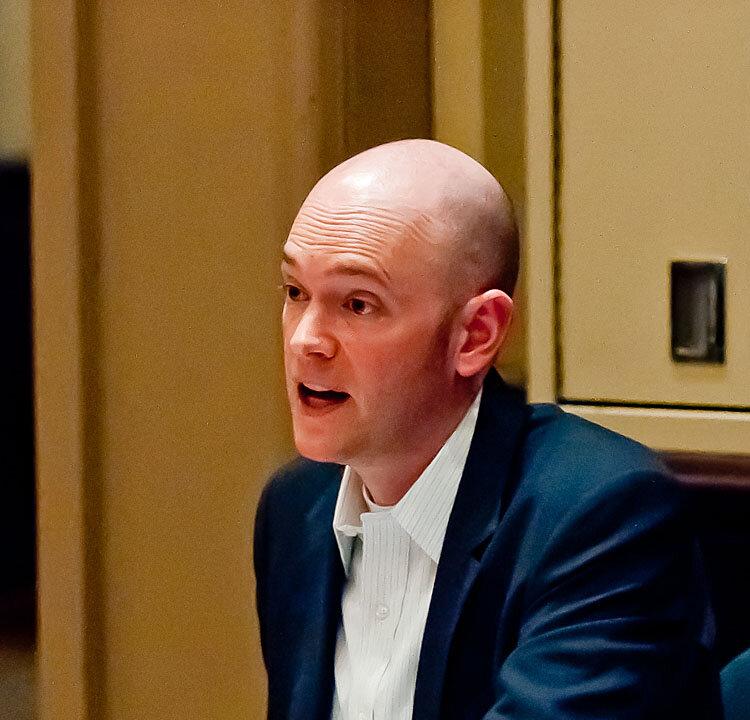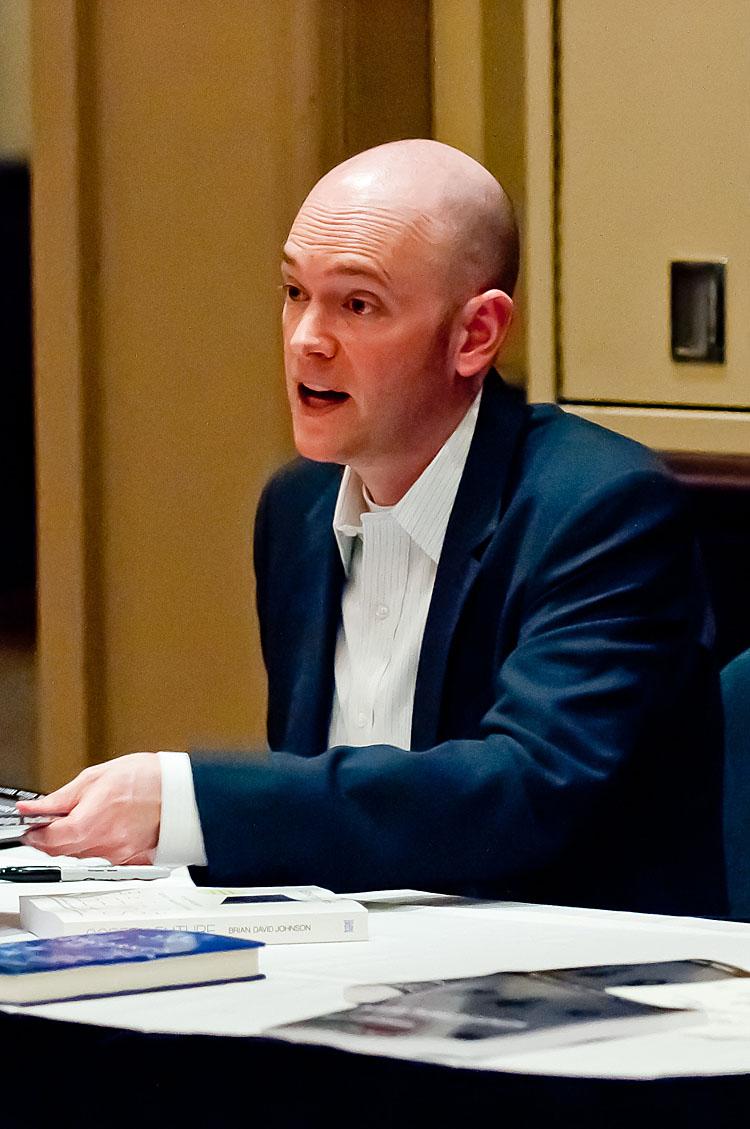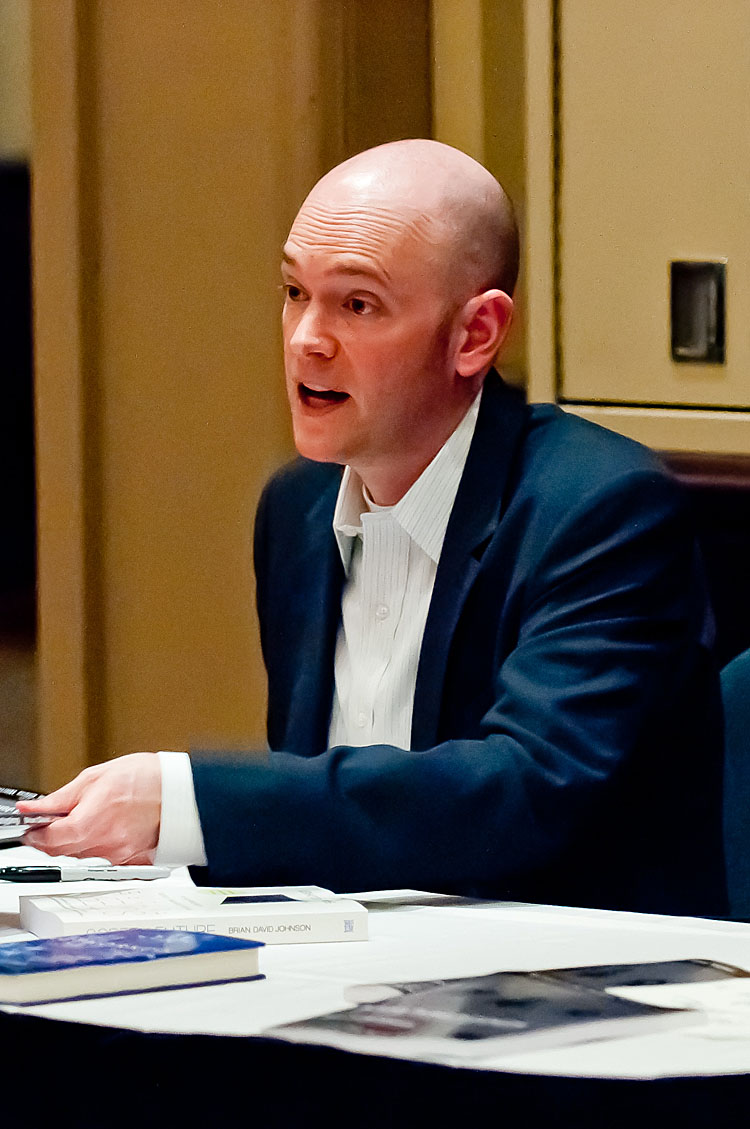TORONTO—Brian David Johnson gets paid to predict the future. He is not a con artist, and his trade requires neither crystal ball nor tarot card. He is the first, the one, and the only futurist at Intel, charged with envisioning how people will interact with technology a decade from now.
This weekend Johnson was one of the keynote speakers at WorldFuture 2012, a gathering of some 500 futurists at Toronto Sheraton Centre.
Like Johnson, many ply their skills predicting what tomorrow will bring. It’s a craft born part of science, part of fiction, and the visions people cast of coming days range from practical and predictable to unsettling and alien.
The annual WorldFuture conference attracts hundreds of professors, consultants, technologists and others who attempt to chart the course of the future under the title of “futurists.”
This year’s conference also featured talks about how genetic modification will change the taste of foods, how future governments will focus on strong community networking, and how to preserve the human brain to live “forever.”
Johnson says conferences like this, which was hosted by the World Future Society, help inspire his work by giving him a sense of what other futurists are anxious about and fear from the future.
Currently, Johnson’s task is to foresee what life will be like in 2022. The main difference between then and now, he noted, is the prominence data will play in people’s lives.







